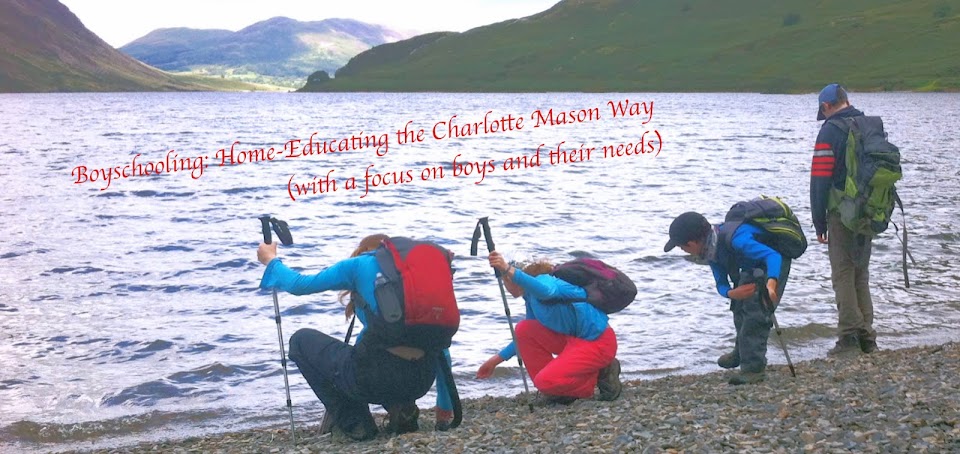 |
| "Our Vicki" at Seven Sisters and Homeschool High School Helps |
She was kind enough to agree to help me in my term-long exploration of my children's own career paths, something originally sparked by our reading Chris Hadfield's An Astronaut's Guide to Life on Earth.
So here is the first part of that interview, basically copied and pasted from our notes. They make excellent reading and Vicki is full of great advice.
Kat, this was fun! Thanks for the opportunity!- Vicki
1. Judging from the timeline on your website profile, I’m assuming you explored your own mid-life career change before helping your homeschooled children work through theirs - what advantages do you think homeschooling parents would gain from re-visiting their own career goals before nurturing their teens’ goals? How should they do this? Good question, Kat! I did actually go back to work after being a stay-at-home homeschooling mom. I homeschooled and worked. In order to do that sanely, I needed to work in a career that would be life-giving to me so that I wasn’t too drained to enjoy my time with my family. It took prayer and an honest look at what God had created me to do. At that time, I wasn’t trained in Career Exploration but that’s what I did for myself: I evaluated my God-given strengths (people have always come to me with their problems, I’m a good listener, I’m intuitive). I evaluated my weaknesses (I can’t count, I’m not great at details). I evaluated my family’s needs (homeschool schedule, support systems/activities involvement, budget). I evaluated my values (time with family/flexible schedule, time to homeschool and go to church). All these put together pointed to one career for me: Counseling (which eventually naturally added Life and Career Coaching).
2. I’m rather assuming in question 1 that career goals are first explored during the high school years, but are there things one can do with one’s children prior to that?
Oh my, yes. When children are young:
- We read biographies of great role models
- We introduce them to leaders and good people and diverse kinds of people
- We teach them life skills, manners, service and good character
- We teach them awareness of God, themselves, the world God made
- We give them many different experiences (like field trips and choirs and science experiments and history projects and writing assignments…)
All of these are early Career Exploration because the basis of Career Exploration is self-knowledge and experiences!
3. I’ve been watching my own children for a long time - a bit like Jesus’s mother, Mary, who treasured up things in her heart when Jesus was a boy - however, most of what I’m seeing is children with weird, whacky, and impractical career goals. One of them wants to be a frog! How do you discern the dross from the gold?
Ha! One of my kids wanted to grow up and be a lizard. He’s now working on his PhD in Comparative Literature. My advice is to hold the idea of careers lightly until they enter high school. Let them enjoy learning about themselves, God, people and the world around them. If you see a strength, give them opportunities to develop that strength without taking the joy out of it.
In high school, I definitely suggest teens do a Career Exploration course. Every teen is different:
- Some of my kids have done this in 9th grade just to get the ideas flowing (but not making a career decision). Then they repeat the course in 11th grade.
- Some of my kids only needed Career Exploration in 11th grade because they had some sense of direction early on (at 11th grade they simply needed to clarify and solidify their decisions).
4. You advocate a wide swathe of experiences for teens as part of their career exploration, but what about the teen who knows exactly what he or she wants to be at a young age?
Yes, every teen is different. I had one teen who wanted to be a photographer from the time she entered high school. I still had her do a Career Exploration course to help her solidify her decision (so that she would not feel regrets 1/2 way through college). I also gave her a few non-photography electives in high school that could broaden her experiences. However, the bulk of her Fine Arts and elective credits were Art and Photography related. (BTW- she is a college graduate now and a successful full-time photographer.)
5. Is there a clear step-wise approach to career exploration, or is it a more organic experience?
There’s not one right way to do Career Exploration. However, the steps I’ve done with my teens have been based on:
- Self-knowledge (What are their God-given strengths, weaknesses and personality?)
- Knowledge of God’s leading (What are their experiences, role models, understanding of God’s working in them- through understanding God’s workings, listening to others’ input, knowing self?)
- Clarification of values (What is important to them in career/lifestyle: time, leisure, community/church involvement, family, finances?)
- Knowing what’s out there (What can they learn from career interest tests and exploration of career descriptions/outlook/education/salary?)
- Trying on hats (Can they shadow, interview or apprentice?)
- Development of job search skills (Help them create mission statements, resumes, cover letters and learn interview skills.)
(BTW- This is exactly what I’ve done with my kids and hundreds of local homeschool high schoolers… and what is available in 7SistersHomeschool.com’s Career Exploration Bundle.
6. What happens when your child is desperate to be, say, a rock star and … ahem … they really can’t sing or play an instrument?
Yeah…I’ve run into that a few times over the years. Failure is a good learning experience. If you can allow them to have some experiences during high school in their “want-to” field, the lack of giftedness usually becomes clear to them. Then, you can lovingly help them explore something more realistic.
However, if you give them the opportunity to fail and they still want to pursue, you can talk to them, tell them what you’re willing to help fund or not and then see how hard they are willing to pursue that dream on their own. I know one mediocre guitarist who scraped through a music major in college thinking he would be a rock star…and he did end up in the music industry in a totally different job. He planned his way but God directed his path.
7. Along the same lines, what about a child who wants to be a receptionist when they grow up, which I think of as the kind of job that teens have part-time in the summer because they’re not really careers?
That’s when you go to CareerOneStop.org (US Department of Labor) and explore that career’s training requirements and income. Then do a good Financial Literacy course with them… On the other hand, Office Managers (upscaled receptionist/admin) make some pretty decent money.
This is the end of Part 1 of Vicki's interview. Be sure to subscribe to the blog so you can get Part 2 of the interview sent straight to your inbox.
NB: Vicki and her colleagues invited me onto their Homeschool High School podcast back in June. You can still hear our discussion about the US vs the UK homeschooling scene at this link here.
NB: Vicki and her colleagues invited me onto their Homeschool High School podcast back in June. You can still hear our discussion about the US vs the UK homeschooling scene at this link here.









































